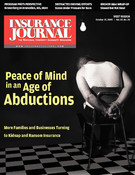The recession has changed the money habits of Americans. Spending is out; saving is in. Or so the media tells us.
In the last issue, one of our contributing writers, Denise Morris of Liberty International Underwriters, noted how frugality, while admirable, becomes foolhardy when it blinds an insured to the necessity of protecting against long term and emerging risks. Of course, smart businesses and individuals have savvy insurance brokers to help them navigate the issues of costs vs. coverage in a recession and a dangerous world.
While money attitudes may be influenced by the current economic downturn, some question whether the effects will be long lasting. More important for the long term could be the attitudes about money people held before the recession. Also, your employees’ long-held attitudes toward spending and saving could be just as important your customers’.
Do your employees’ attitudes about money affect their performance—even as they cope with job insecurity in today’s downturn?
Researchers at the Florida State University College of Business have been examining the saving and spending philosophies established prior to the recession on work and home life. Wayne Hochwarter, Florida State’s Jim Moran Professor of Management, and research associate Christian Ponder, examined the saving and spending philosophies of more than 1,500 full-time employees who experienced increased job insecurity over the past 12 months.
We have all been schooled in the importance of saving money for a “rainy day.” Hochwarter compared work and home anxiety of both “spenders” and “savers” to see if that message still rings true when faced with work uncertainty. He and his team found statistically significant results confirming the value of family thriftiness.
Compared to financially conservative individuals (savers), less thrifty employees (spenders):
- Experienced less enjoyment in the tasks they performed at work;
- Were less interested in seeking out ways to improve the company;
- Had difficulty concentrating on tasks and were more easily distracted;
- Reported that completion of job tasks has been repeatedly delayed because of increased job-search activity at work;
- More frequently reported that work was “nerve-racking”;
- Experienced more work-family imbalance;
- Were increasingly concerned that future financial obligations will go unmet;
- Felt more downhearted and irritable at work.
“Unquestionably, companies will benefit by helping employees recognize the value of thriftiness and teaching tangible financial management skills,” Hochwarter concludes. “Our research confirms that doing so may contribute to higher levels of performance and more-stable home relations.”
Hochwarter notes that thriftiness is generally frowned upon in American society, which tends to judge people by how many toys, cars and houses they accumulate. But maybe the changes in money habits brought about by the recession will last. It’s about the only good that could come from it.
Was this article valuable?
Here are more articles you may enjoy.


 Insurify Starts App With ChatGPT to Allow Consumers to Shop for Insurance
Insurify Starts App With ChatGPT to Allow Consumers to Shop for Insurance  US Appeals Court Rejects Challenge to Trump’s Efforts to Ban DEI
US Appeals Court Rejects Challenge to Trump’s Efforts to Ban DEI  Q4 Global Commercial Insurance Rates Drop 4%, in 6th Quarterly Decline: Marsh
Q4 Global Commercial Insurance Rates Drop 4%, in 6th Quarterly Decline: Marsh  The $3 Trillion AI Data Center Build-Out Becomes All-Consuming for Debt Markets
The $3 Trillion AI Data Center Build-Out Becomes All-Consuming for Debt Markets 


